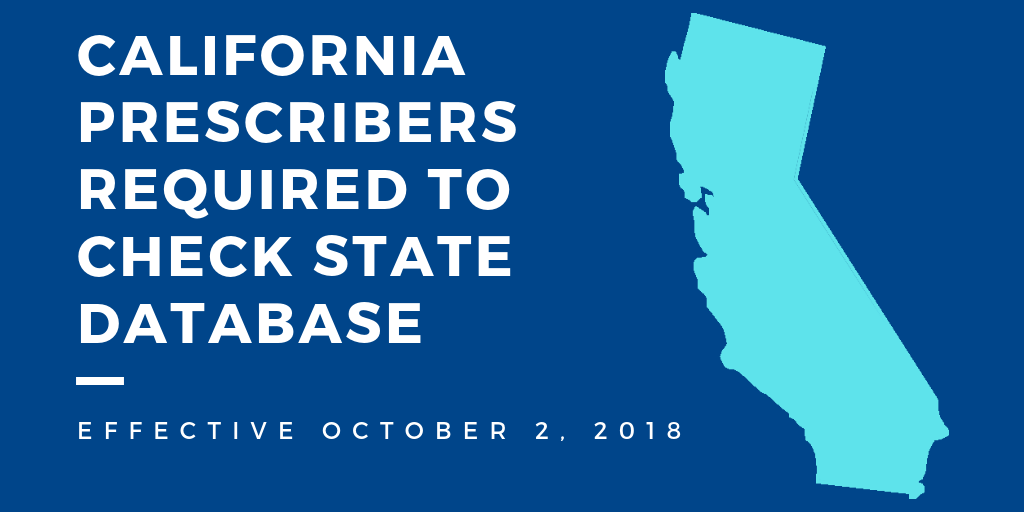
Starting October 2, 2018, prescribers in California will be required to check the state’s prescription monitoring database, Controlled Substance Utilization Review and Evaluation System (CURES), before prescribing Schedule II, III, or IV drugs. California is one of 39 states that mandate prescribers to check prescription monitoring databases in an effort to combat the opioid epidemic. By checking a database before prescribing, prescribers can identify “doctor shoppers” who go from doctor to doctor to obtain multiple prescriptions.
Prescribers will now be required to check CURES if it is the first time prescribing the scheduled drug for the patient or if it has been four months since the last time they checked the database for the patient. The check must be completed no earlier than 24 hours or the previous business day prior to the prescribing, ordering, administering or furnishing of a controlled substance to the patient.
All prescribers who were authorized to prescribe or dispense Schedule II-IV controlled substances were originally required to just register to use CURES by July 1, 2016. The requirement to check the database was to start six months after the state certified the database was ready. The California Department of Justice (DOJ) certified CURES was ready for statewide use on April 2, 2018.
If prescribers do not comply, it could result in disciplinary proceedings against a practitioner’s license. The Medical Board of California states in their CURES Mandatory Use FAQs1, “Failing to consult CURES is a violation of the law and it could result in the issuance of a citation and fine, or could be a cause of action In an accusation that leads to disciplinary action. Disciplinary action could be a public reprimand, suspension, probation, or revocation. Each violation of the law is reviewed on a case-by-case basis.”
The Medical Board of California also recommends that prescribers either note in the patient’s chart that they checked the CURES database or print the report and put it in the patient’s file to document that the check was completed.
MDToolbox makes it convenient for prescribers to check CURES by providing a link directly to the database from within the prescription writer. The system also automatically makes note that the database was checked for the prescriber. For more information and to request a free trial, see California E-Prescribing or contact us at info@mdtoolbox.com.
1. Medical Board of California CURES Mandatory Use FAQs http://www.mbc.ca.gov/Licensees/Prescribing/CURES/CURES_FAQ.pdf?utm_source=link&utm_medium=email&utm_campaign=CURES&utm_content=faq